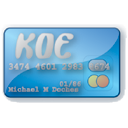|
Click to get a Secure Quote from an Independent Agent
Choose from Over 11 Top Companies!
|
In a Hurry?
Get a Quote Now from a Progressive Agent |
|
|
Click to get a Secure Quote from an Independent Agent
Choose from Over 11 Top Companies!
|
In a Hurry?
Get a Quote Now from a Progressive Agent |
|
|
|
Frequently Asked Questions about Insurance in Oregon
General FAQ's Q: What are the advantages to using an agent to purchase insurance? A: By purchasing insurance from an agent, the policyholder receives more personal, one-on-one service. An agent with whom there is direct contact can be vital when purchasing a policy and helpful when filing a claim. It is also important to note that many insurance carriers offer direct policies as well as operate through independent agents, all under the same name. Please be careful! This does not mean that you get the same rate from the same insurance company. Often you find the price of the direct version of the company is more expensive than if you buy through an agent. Be sure to shop both and weigh the benefits before you make a decision. Ask yourself how much those direct insurance company television ads cost! Q: When can my insurance begin? A: In most cases immediately. We offer instant coverage on all types of personal auto, recreational vehicle and home policies. A policy can be requested to start on the same day or anytime in the future. Back-dating is illegal--don't even ask! Commercial and life policies may experience a slight delay, depending on the time of day the quote is requested. Q: How do I make payments? A: There are a number of easy ways to make payments:
Q: How and why would I get cancelled? A: The two most common reasons for cancellation are for non-payment of the insurance premium or undisclosed driving record. The State of Oregon now allows active, real-time motor vehicle report searches, so an undisclosed driving record is becoming less common. It is also important to disclose all residents of your household age 14 and over, regardless of their driving status. Undisclosed drivers in the household can be grounds for termination or denial of a claim. Auto FAQ's: Q: What is an SR-22? A: An SR-22 is a form or certificate that shows that you have auto insurance. It is the State of Oregon's way of making sure that you maintain liability insurance. You may be required by the Oregon DMV to file an SR-22 form if you were involved in one or more of the following:
Q: What does credit have to do with insurance? A: Insurance companies and institutes have conducted studies they believe prove that credit history can predict the likelihood you will be involved in an accident or have a claim. We think you should have a choice whether to include credit as a factor in the price of your insurance. We have several companies that do not check your credit score if you prefer not to have it considered. Q: What should I do if I just had an auto accident? A: Always keep a pen and paper in your car. Take down the name of the driver, address, phone number and license plate number. Also get the other driver's insurance company name and policy number. Please share your information with the other driver but do not admit fault. Let the insurance adjusters investigate the claim to determine who was at fault. If you or the other driver were injured, you should then report the accident to your insurance company right away. If you were not injuried, you should only report the accident to the company of the driver you are positive was at fault. If the police are called to the scene, be sure you write down the officer's name and badge number. It will come in handy for your adjuster to request a police report. You will need to speak with the insurance company directly. You can report the accident to your agent, however, agents are not claims representatives and will simply be a conduit to your insurance company. Statements must be made directly from you to the company claims representative. Agents do not settle insurance claims. Claims representatives work for the insurance company and have the authority to deny or approve claims. Q: Which coverage pays for damage to my vehicle? A: Depending on what kind of damage your car suffers, physical damage coverage - comprehensive or collision insurance - will pay for the damages. If you hit a deer or other animal, your car gets stolen, catches on fire, or is vandalized, your comprehensive coverage will kick in. If you crash into something and crunch your car, your collision coverage will kick in. Both of these types of coverage are optional and, of course, adding them to your policy will raise your insurance premium. Becareful when buying full coverage insurance. You must ask for the extras like towing and rental. We also recommend you purchase a separate roadside assistance program such as AAA. Q: What if I have too many tickets or accidents? A: We have more than 10 companies we can quote you. If other companies have turned you down, you have come to the right place. Q: Do I need to purchase insurance before I buy a new car? A: If this is your first car, yes, you'll have to buy auto insurance before you drive your new car off the dealer's lot. However, if you already have an auto policy with comprehensive, collision and liability, it will generally cover your new automobile for a period of up to 14 days after you buy it, giving you plenty of time to inform your agent of the purchase. It is not unusual for a lender to require full coverage on a your new car if it financed. Your new car serves as the collateral for the lender, so it is in the best interest of the finance company to have it fully financially protected. This is legal so long as the lender or the dealer do not mandate which insurance company you must use. If you are buying a new car that is being financed and do not have comprehensive and collision coverage on your existing car, call us and we will immediately add the car and coverage you need and fax the proof of insurance to the lender and dealer. Q: What can I do to protect myself against uninsured drivers? A: Purchasing uninsured/underinsured motorist (UM/UIM) coverage can protect you against uninsured drivers. In many states, UM coverage is required by law. UM coverage will pay for medical bills and pain and suffering if you are hit by an uninsured driver. You may purchase uninsured Motorist Property Damage (UMPD) coverage depending on the age of your vehicle and the insurance carrier you choose. If your car is crunched by an uninsured driver and you have UMPD coverage, you'll be able to get your car fixed under this coverage rather than using your collision coverage. This coverage even applies to hit and run accidents. Ask us if you are eligible for uninsured motorist property damage coverage. Q: What are some practical things I can do to lower my automobile insurance rates? A: There are a number of things you can do to lower the cost of your automobile insurance. The easiest thing to do is ask us to get quotes from several companies for you. It is not uncommon to find quotes on automobile insurance that can vary by hundreds of dollars for the same coverage on the same car. When you shop, be careful to make sure each insurer is offering the same coverage. Another way to lower the cost of your automobile insurance is to look for any discounts for which you may qualify. For example, many insurers will offer you a discount if you insure multiple cars under the same policy or if you have had a driver education class in the last five years. Be sure to ask us about their discount plans. Owning a home, mobilehome, duplex or townhome will help you save a lot of money. Increasing your deductible on physical damage coverage will lower your rate. Simply raising your deductible from $250 to $500 can lower your premium sometimes by as much as ten percent. Q: Suppose I lend my car to a friend, is he/she covered under my automobile insurance policy? A: Whenever you knowingly loan your car to a friend that doesn't live in the same house as you, he or she should be covered under your automobile insurance policy. Your policy, however, may have certain driver exclusions. Drivers that live in your house that are not listed on your policy may not be covered unless you include them as an authorized driver. One important note: if the individual driving your car has a suspended license, your car can be towed if the individual is pulled over for a traffic infraction. We recommend that you never lend your car to anyone as you are personally responsible for anything that happens while that car is being driven by someone else. Q: My car was hit while parked and I don't know who did it, what do I do? A: Here are the most immediate steps:
Q: What kinds of questions should I be expected to answer when I am applying for an insurance policy? Why do insurers need so much information? A: When you apply for an insurance policy, you will be asked a number of questions. For example, the agent will ask you your name, age, gender, address, etc. The agent will want to know about your driving record, and what type of car is to be insured. Insurance companies have different programs for different customers. Adults with good driving records will generally pay less for auto insurance than young drivers with traffic tickets and accidents. In addition to your age, gender and driving experience, information about the vehicle you drive and how you drive it, is also needed to determine a fair price. For example, a large luxury car costs more to repair or replace than a sub-compact and someone who commutes 30 miles each way is more likely to be in an accident than someone who rides the bus to work or drives only on weekends. Q: I have an older car whose current market value is very low. Do I really need to purchase automobile insurance? A: The State of Oregon requires drivers to have a minimum amount of automobile liability insurance. These laws were enacted to ensure that victims of automobile accidents receive compensation when their losses are caused by the actions of another individual who was negligent. It is often the case that the cost of repairing the damages to an older car is greater than its value. In these cases, your insurer will usually just total the car and give you a check for the car's market value less the deductible. Many people with older cars decide not to purchase any physical damage coverage. Q: What is the difference between collision physical damage coverage and comprehensive physical damage coverage? A: Collision is defined as losses you incur when your automobile collides with another car or object. For example, if you hit a car in a parking lot, the damages to your car will be paid under your collision coverage. Comprehensive provides coverage for most other direct physical damage losses you could incur, including theft. For example, damage to your car from a hailstorm would be covered under your comprehensive coverage. Q: What are the different types of Auto Insurance? Liability - Required If you cause an accident due to the negligent operation of your vehicle, it pays for bodily injury to other people or damages to their property. It may also pay if an accident was caused by a member of your family living with you, or a person using your car with your permission. Currently, Oregon State Law requires minimum limits of $25,000 per person, $50,000 per accident for bodily injury and $15,000 per accident for property damage. Increased limits can be available for suprisingly little additional cost. Uninsured and Underinsured Motorist - Required This can protect you if you are injured in an accident by others who do not carry enough insurance or have no insurance. Provides recovery for bodily injury caused by the operator of an uninsured automobile, including a hit-and-run driver (after any applicable deductible). Personal Injury Protection (PIP) - Required Guarantees immediate medical payments for you, your passengers and other parties involved in the accident, regardless of who may be at fault. This is available to help someone who is injured get the necessary medical attention and deal with the issue of fault and insurance later. PIP can also pay for lost wages and funeral expenses. Uninsured and Underinsured Motorist Property Damage - Optional This coverage may be available, depending on the age of your vehicle and the insurance carrier you have chosen. It can provide recovery for physical damages to your car, caused by the operator of an uninsured automobile, including a hit-and-run driver (after any applicable deductible). Physical Damage / Collision - Optional It may be required if you have a loan or a lease for your car. Collision pays for damages to your own vehicle by accidental collision. Physical Damage / Comprehensive - Optional It may be required if you have a loan or a lease for your car. Comprehensive pays for damages to your car caused by fire, theft, vandalism, natural disaster or similar events. It is the coverage that applies when you hit a deer or some other unexpected moving animal or object not normally found in a roadway. Q: What determines my auto insurance premiums? Your Driving Record The rates used in determining your premium are affected by your history of claims and traffic violations for up to three years. Drivers with more accidents and tickets on their records will have higher premiums. Your Age, Sex and Marital Status Statistics show that the frequency of accidents is higher for males than females. Teenagers have more accidents than adults and single people have more accidents than married people. High accident frequencies mean higher premiums. Your Residential Location Congested areas such as cities have heavier traffic and more thefts and vandalism. Consequently, these areas pay higher premiums than rural areas. Type of Vehicle and Vehicle Use Some vehicles cost more to repair than others and therefore cost more to insure. Higher premiums are also the result of vehicle usage, such as business use and vehicle performance, such as turbo or other high performance engines. Life Insurance FAQ's Q: What if I already have life insurance coverage through my employer? A: That's great, and it's wonderful that you are fortunate enough to have an employer that recognizes the value of life insurance coverage for you and your family. Be sure to find out from your employer if this coverage is portable, meaning you can take your policy with you when you leave the company or become disabled. Q: Should term insurance or cash value life insurance be purchased? A: This is a difficult question -- one whose answer will vary depending on your personal circumstances. First, recognize that in any life insurance purchasing decision, two questions must be answered:
If you can afford a higher premium, then it is appropriate to consider the second question -- what type of policy to buy. Important factors affecting this decision include your income tax bracket, whether the need for life insurance is short-term or long-term (e.g., 20 years or longer), and the rate of return. Q: How do I know which is the right type of life insurance? A: The answer will vary depending on your need for the coverage, timing of the purchase and how much you are able to spend. Q: How much life insurance should I purchase? A: As a rule of thumb you should purchase an amount of life insurance equal to 6 to 8 times the annual earnings. However, many factors include:
Q: How does mortgage protection term insurance differ from other types of term life insurance? A: The face amount under mortgage protection term insurance decreases over time, consistent with the projected annual decreases in the outstanding balance of a mortgage loan. Mortgage protection policies are generally available to cover a range of mortgage repayment periods, e.g., 15, 20, 25 or 30 years. Although the face amount decreases over time, the premium usually remains the same. Q: My mortgage company says I should buy life insurance from them, what is that about? A: Most likely your mortgage company is offering something called mortgage protection life insurance or decreasing mortgage protection or a similar title. This sort of protection is a basic term life insurance policy that usually has a level premium, but the death benefit pays off your mortgage loan at your death. This is basically credit life insurance, insurance taken out in conjunction with an installment loan. Homeowner FAQs Q: What are some practical things I can do to lower the cost of my homeowners insurance? A: There are a number of things you can do to lower the cost of your homeowners insurance. One way to lower the cost of your homeowners insurance is to look for any discounts that you may qualify for. For example, many insurers will offer a discount when you place both your automobile and homeowners insurance with them. Other times, insurers offer discounts if there are deadbolt exterior locks on all your doors, or if your home has a security system. Be sure to ask us about any discounts for which you may qualify. Another easy way to lower the cost of your homeowners insurance is to raise your deductible. Increasing your deductible from $250 to $500 will lower your premium, sometimes by as much as five or ten percent. Q: What does homeowners insurance cover? A: The typical homeowner's policy has two main sections: Section I covers the property of the insured and Section II provides personal liability coverage for the insured. Almost anyone who owns or leases property has a need for this type of insurance. Usually, homeowners insurance is required by the lender to obtain a mortgage. Q: What is the difference between actual cash value and replacement cost? A: Covered losses under a homeowner's policy can be paid on either an actual cash value basis or on a replacement cost basis. When actual cash value is used, the policy owner is entitled to the depreciated value of the damaged property. Under the replacement cost coverage, the policy owner is reimbursed an amount necessary to replace the article with one of similar type and quality at current prices. Q: Where and when is my personal property covered? A: Personal property (except property that is specifically excluded) is covered anywhere in the world. For example, suppose that while traveling, you purchased a dresser and you want to ship it home. Your homeowner's policy would provide coverage for the named perils while the dresser is in transit -- even though the dresser has never been in your home before. Q: Do I need earthquake coverage? How can I get it? A: The standard insurance policy does not pay for direct damages caused by earth movement. Earth movement is a much broader term than earthquake. It includes earthquake, volcanic activity and other earth movement. This coverage may be available by endorsement for an additional charge. Q: What are the policy limits (i.e., coverage limits) in the standard homeowners policy? A: The dwelling and other structures on the premises are protected on an all risks basis up to the policy limits. All risks means that unless the policy specifically excludes the manner in which your home is damaged or destroyed, there is coverage. The policy limit for the dwelling is set by the policyowner at the time the insurance is purchased. Personal property is covered on a named perils basis. Named perils means that you have coverage only when your property is damaged or destroyed by events specifically described in the policy. The policy limit on the personal property coverage is usually between 50% and 70% of the limit on the structure at no additional cost. You may purchase more at additional cost if you can demonstrate your coverable possessions exceed these percentages. Loss of Use and provides for the cost of living somewhere else while your home is being rebuilt. The limits for this coverage are equal to 20% of the policy limit on the dwelling. The coverage limit on personal liability is determined by the policyowner at the time the policy is issued. The coverage limit on medical payments to others is usually set at $1,000 per injured person, although higher limits can be purchased. Q: Can I get homeowners insurance if my home is considered a standard or high risk? A: We have companies able to handle preferred, standard, specialty, and high risk Homeowners insurance. We can do older homes, losses, out of state landlord, course of construction, vacancies and more! Renters FAQs Q: Why would I want to buy renter's insurance? A: If you live in an apartment or a rented house, renter's insurance provides coverage for you and your possessions. A renter's policy protects your personal property in case of theft or fire. It can also shield you from personal liability. Anyone who leases a house or apartment should consider this type of coverage. Q: How does a renter's policy protect my personal property? A: A renters policy provides named perils coverage. This means that the policy only pays when your property is damaged or destroyed by ways specifically described in the policy. These usually include:
Q: Why do some apartment complexes require tenants to have renter's insurance? A: Owners of apartment complexes buy insurance for their liability and to cover their buildings and property. This insurance does not cover any of the tenant's property or liability. When landlords require tenants to have renters insurance, the apartment owner is making sure that the tenants will not think the apartment complex policy will cover the tenant's property or provide the tenant coverage for events causing damage or injury for which the tenant is liable. Q: What if I share my apartment with a roommate? Do we both need to have renters insurance? A: Standard renter's policies cover only you and relatives that live with you. If your roommate is not a relative, each of you will need your own renter's policy to cover your own property and to provide you liability coverage for your own actions. However, we do have companies that will allow you to list your roommate as an Additional Insured on the same policy. |

Home Page

Chat Live

Find Us

Client Area

File a Claim

Make a Payment

Make a Change

Refer a Friend

Contact Us
|
|
Copyright © 2008 Pulse Insurance, LLC - pages created by AngelWingDesign.com
|